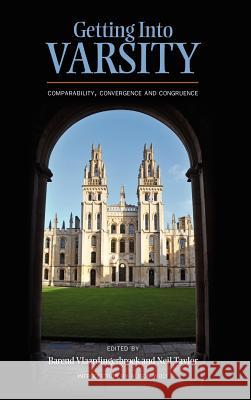Getting Into Varsity: Comparability, Convergence and Congruence » książka
Getting Into Varsity: Comparability, Convergence and Congruence
ISBN-13: 9781604977134 / Angielski / Twarda / 2010 / 330 str.
In their research in the field of international education, the editors found that the university admission function of terminating school assessment has largely eclipsed the school-leaving-certification aspect in systems where the two go together. But it is not only students from education systems which have curriculum-based external examinations at the culmination of schooling who aspire to enter university. Once the privilege of the well-heeled classes, university education has become to today's middle-class youngster what a high school certificate was to preceding generations at the same stage of life. Be it the demands of the 'knowledge society' or merely credential inflation, a great many young people now regard tertiary education as the means by which to realise their ambitions. Schooling has become a stepping-stone to post-school education and training (e.g., university). This edited volume accordingly focuses on the transition from school to university. In broad terms, there are two kinds of university admission systems: first, those in which upper secondary school qualifications explicitly confer the right to enrol at university, and second, those in which they do not. Some systems exhibit an additional layer of testing between those leading to school certification and the attainment of university entrance status. Securing the general right to enter university may only be a first step. Individual universities may impose their own entrance requirements, particularly in the case of competitive-entry programmes. These may involve selection procedures not associated with examinations or tests. In some systems, a student may be able to enrol in selective faculties directly upon making the transition from school; in others, there may be a significant lapse of time separating general university admission and enrolment in a desired field via 'pre-' courses or even first degrees in other fields. This book will be of considerable interest to scholars and practitioners in the fields of strategic educational planning and high-stakes assessment and examinations, particularly those with a comparative focus.











